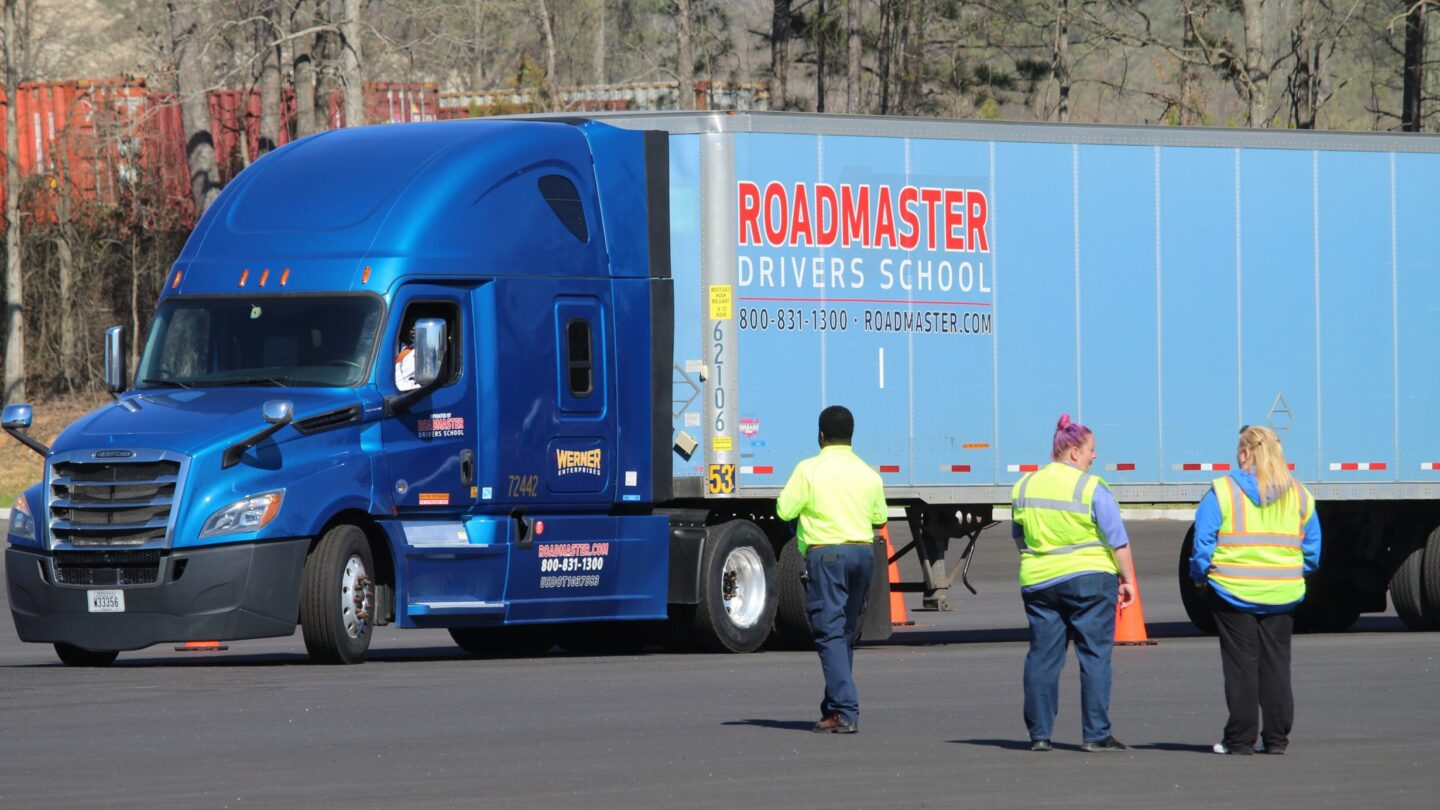Gregory Wynn spent more than three decades doing repairs for AT&T.
“I was ready to retire, but I wasn’t ready to stop working,” Wynn said. So he turned to the trucking industry and enrolled at Roadmaster Drivers School.
He says training included time in the classroom, on-the-road instruction and a lot of studying — of both the mechanics of the truck, and the law.
“I never realized how challenging [it was] and all the things you have to know,” Wynn said. “I got a lot more respect for truck drivers. They actually know a lot more than you think.”
Wynn is done with his training. He just needs to take a state test before he can hit the road full time.
His late-career change is welcome news for an industry that, by some estimates, is in need of 80,000 truck drivers. Roadmaster’s new driving school is in DeKalb County and could help fill hundreds of those spots.
Truckers are a critical link in the nation’s supply chain, and the industry continues to see a massive shortage of qualified drivers.
The new Roadmaster facility was built in Conley, in an industrial part of DeKalb County. It’s the company’s 20th school in the nation and third in Georgia. Roadmaster has been in business for 30 years.
DeKalb County Commissioner Larry Johnson says the location will be convenient for younger drivers who are interested in a career in trucking.
“We’ve got three major high schools that can take advantage of this type of training and they can jump right into the middle class,” said Johnson.
And the path for young drivers to be able to fully enter the trucking industry could be smoother soon. A new pilot program at the federal level is set to lower the minimum age for interstate truck drivers from 21 to 18.
Roadmaster’s Brad Ball says his company is ready to offer the extra training needed to get younger drivers ready to cross state lines.
“They’re gonna have longer training, very safe trucks; the instructors are required to have more experience and the carriers are required to track their progress and report on any incidences that occur,” said Ball. Ball says he expects the new driving school in South DeKalb to produce some 600 new truckers a year.
Several technical schools in Georgia also have truck driver training programs and received extra funding in this year’s budget to upgrade facilities.
Sandy Lake, director of logistics for Georgia’s Center for Innovation, says the state’s rapid growth as a shipping hub in the Southeast can’t happen without truckers.
“Whether it’s first-mile, middle-mile or last-mile, none of those miles get covered without drivers,” Lake said. “So the drivers really are the lynchpin, and the trucks really are the lynchpin to the entire operation.”









